Related Research Articles
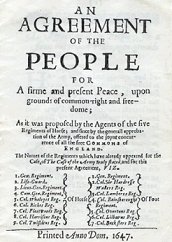
The Levellers were a political movement active during the Wars of the Three Kingdoms who were committed to popular sovereignty, extended suffrage, equality before the law and religious tolerance. The hallmark of Leveller thought was its populism, as shown by its emphasis on equal natural rights, and their practice of reaching the public through pamphlets, petitions and vocal appeals to the crowd.

The New Model Army or New Modelled Army was a standing army formed in 1645 by the Parliamentarians during the First English Civil War, then disbanded after the Stuart Restoration in 1660. It differed from other armies employed in the 1639 to 1653 Wars of the Three Kingdoms in that members were liable for service anywhere in the country, rather than being limited to a single area or garrison. To establish a professional officer corps, the army's leaders were prohibited from having seats in either the House of Lords or House of Commons. This was to encourage their separation from the political or religious factions among the Parliamentarians.

Henry Ireton was an English general in the Parliamentarian army during the Wars of the Three Kingdoms, and the son-in-law of Oliver Cromwell. He died of disease outside Limerick in November 1651.

John Lambert was an English Parliamentarian general and politician. Widely regarded as one of the most talented soldiers of the period, he fought throughout the Wars of the Three Kingdoms, and was largely responsible for victory in the 1650 to 1651 Scottish campaign.
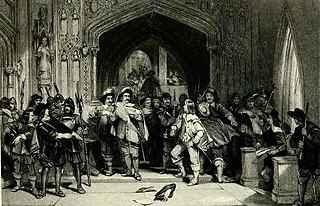
Pride's Purge is the name commonly given to an event that took place on 6 December 1648, when soldiers prevented members of Parliament considered hostile to the New Model Army from entering the House of Commons of England.
This is a timeline of events leading up to, culminating in, and resulting from the English Civil Wars.

The Second English Civil War took place between February and August 1648 in England and Wales. It forms part of the series of conflicts known collectively as the 1639–1653 Wars of the Three Kingdoms, which include the 1641–1653 Irish Confederate Wars, the 1639–1640 Bishops' Wars, and the 1649–1653 Cromwellian conquest of Ireland.

Robert Lilburne (1613–1665) was an English Parliamentarian soldier, the older brother of John Lilburne, the well known Leveller. Unlike his brother, who severed his relationship with Oliver Cromwell, Robert Lilburne remained in the army. He is also classed as a regicide for having been a signatory to the death warrant of King Charles I in 1649. He was forty-seventh of the fifty nine Commissioners.
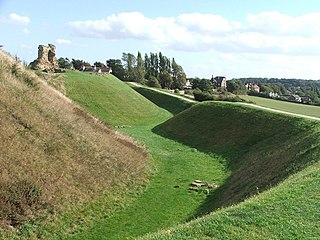
Major-General Robert Overtonc. 1609 to 1678, was a member of the landed gentry from Yorkshire, who fought for Parliament during the Wars of the Three Kingdoms, and reached the rank of Major General in 1652. A committed republican and religious Independent who sympathised with the Fifth Monarchists, like others with similar views he opposed the establishment of The Protectorate, and was held in the Tower of London from 1655 to 1659.
The Army Council was a body established in 1647 to represent the views of all levels of the New Model Army. It originally consisted of senior commanders, like Sir Thomas Fairfax, and representatives elected by their regiments, known as Agitators.
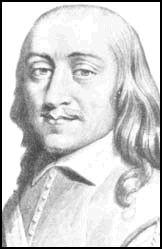
Thomas Rainsborough, or Rainborowe, 6 July 1610 to 29 October 1648, was an English religious and political radical who served in the Parliamentarian navy and New Model Army during the Wars of the Three Kingdoms. One of the few contemporaries whose personal charisma and popularity rivalled that of Oliver Cromwell, he has also been described as "a soldier of impressive professional competence and peerless courage".
Thomas Rawton was one of the highest-ranking officers to support the Levellers, and served with Parliament on both land and sea. He was the eldest son of Captain John Rawton, a naval officer who made his fortune in the Baltic trade, and inherited his father's property in the London Borough of Southwark.
Events from the year 1645 in England. This is the fourth year of the First English Civil War, fought between Roundheads (Parliamentarians) and Cavaliers.
Robert Hammond was an officer in the New Model Army under Oliver Cromwell during the First English Civil War and a politician who sat in the House of Commons in 1654. He is best known for his year-long role in keeping Charles I of England in custody.
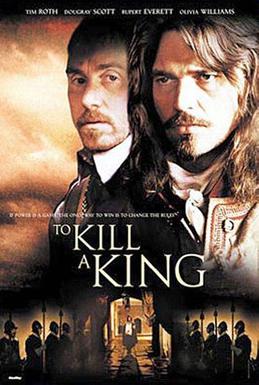
To Kill a King is a 2003 English Civil War film directed by Mike Barker, and starring Tim Roth, Rupert Everett and Dougray Scott. It centres on the relationship between Oliver Cromwell and Thomas Fairfax in the post-war period from 1648 until the former's death, in 1658. The plot includes considerable artistic license with historical facts.
Events from the year 1646 in England. This is the fifth and last year of the First English Civil War, fought between Roundheads (Parliamentarians) and Cavaliers.
Events from the year 1647 in England.
William Sedgwick was an English priest of Puritan views and mystical tendencies, known as the “apostle of the Isle of Ely” and “Doomsday Sedgwick”.
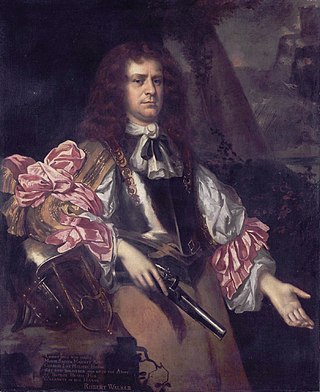
Lieutenant-Colonel George Joyce was an officer and Agitator in the Parliamentary New Model Army during the English Civil War.
William Eyre, was an English Parliamentary army officer in the English Civil War and a Leveller.
References
- 1 2 3 4 5 6 7 8 9 "1648". BCW Project. Retrieved 2016-03-19.
- 1 2 3 Palmer, Alan; Palmer, Veronica (1992). The Chronology of British History. London: Century Ltd. pp. 182–183. ISBN 0-7126-5616-2.
- 1 2 3 4 5 6 Williams, Hywel (2005). Cassell's Chronology of World History . Weidenfeld & Nicolson. pp. 262–263. ISBN 0-304-35730-8.
- ↑ "Leveller petition 1648" . Retrieved 2016-07-25.